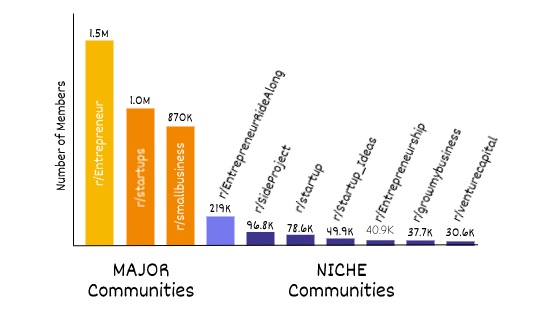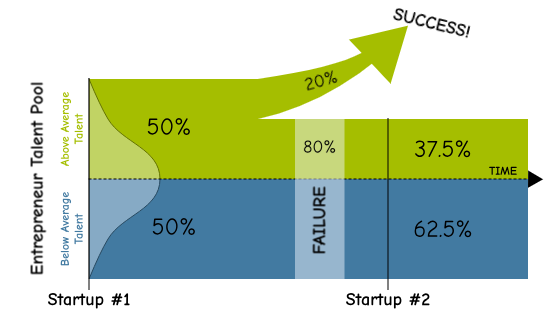Traditional education and training programs from universities, incubators, and government programs attempt to fill vital startup knowledge and socialization gaps. Our offerings are often selected based on what we as the experts feel are the most vital topics for members in our startup networks. However, these topics can sometimes devolve into the same tired greatest hits list – startup basics, patents, financing, marketing, and teams – repeated annually.
Can open online entrepreneurial communities improve formal training topic selection?
I think so.
Three researchers at business schools in Norway and Germany recently published a study analyzing topics discussed on the Reddit community r/startups. This community has over 1 million users and recent (September 15, 2022) threads include such topics as:
- “How do you deal with cofounders that don’t stay in their lanes?”
- “Startup is closing down – how did you tell friends and family without feeling terrible?”
- “Need help transitioning from a software engineer role to a cofounder role.”
- “Static Growth…how do I add more value?”
- “Collaboration with influencers.”
The researchers analyzed the nature of the top 100 threads in r/startups over 2018 to 2019. They found 38 of these threads were seeking advice on startup strategy (18), personal development (12), and navigating interpersonal conflict (8). Twenty threads related to sharing lessons learned based on entrepreneurial experiences – good and bad. Another 20 focused on personal reflection and sharing the emotional rollercoaster journey of navigating a startup lifestyle. Eleven threads targeted sharing helpful resources or practical how-to information. Conversations these threads included a mix of emotional support, practical advice, and motivational pitches.
Want to explore more entrepreneurial communities online? Check out these popular subreddits!

The Takeaway
Entrepreneur support programs can make better use of social platforms such as r/startups. While startups in formalized programs can greatly benefit from in-person networking, mentorship, and training opportunities, many entrepreneurs – particularly disadvantaged entrepreneurs – lack ready access to these networks. Online networks can supplement traditional education and training programs from universities, incubators, and government programs.
We can also use these discussions to generate better topic ideas for our training events. Instead of pushing out one more workshop on “What is Intellectual Property?” consider browsing the conversions on r/startups or other groups to identify more creative alternatives!
Here are 13 personal favorites from the top-100 threads mentioned in the study report.
- What are some habits of highly Unsuccessful founders? (Anti-Patterns)
- Teach us a lesson. Share your failed business stories
- How LinkedIn Got Their First Users?
- I hate talking to customers. Any tips to get over it?
- How do I put my failed startup on my resume?
- The Five Biggest Things I’ve Learned From Building A Startup
- The team you start with is not the one you scale with
- Most startups are actually marketing problems
- 100% of 0 is nothing
- 3 Years in and Feeling Burned Out
- CEO is lying to potential clients and investors about our number of paid users. And it’s in writing
- How to price your product in a way that communicates quality
- If “You don’t need to go to school to become an entrepreneur” where do you learn business finance?
The Study
Schou, P. K., Eliane, B., & Matthias, W. (2022). Entrepreneurial learning in online communities. Small Business Economics, 58(4), 2087-2108. doi:https://doi.org/10.1007/s11187-021-00502-8

